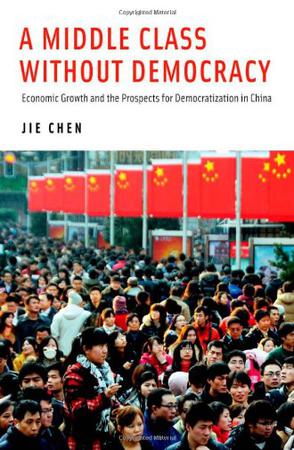
章节目录
Contents List of Tables and Figures iv Preface vii List of Abbreviations xii Chapter 1: Introduction: The Contingent Middle Class 1 Chapter 2: China's Middle Class: Definition and Evolution 36 Chapter 3: How Does the Middle Class View Democracy and the Government? 93 Chapter 4: Why Does or Does Not the Middle Class Support Democracy? 130 Chapter 5: The Impact of Democratic Support on the Middle Class's Political Behavior 167 Chapter 6: Conclusion: Contingent Democratic Supporters and Prospects for Democracy 209 Appendix: List of In-Depth Interviews Conducted in Beijing, Chengdu, and Xi'an in 2008 240 References 252 Index 277
内容简介
What kind of role can the middle class play in potential democratization in such an undemocratic, late developing country as China? To answer this profound political as well as theoretical question, Jie Chen explores attitudinal and behavioral orientation of China's new middle class to democracy and democratization. Chen's work is based on a unique set of data collected from a probability-sample survey and in-depth interviews of residents in three major Chinese cities, Beijing, Chengdu and Xi'an—each of which represents a distinct level of economic development in urban China-in 2007 and 2008. The empirical findings derived from this data set confirm that (1) compared to other social classes, particularly lower classes, the new Chinese middle class-especially those employed in the state apparatus-tends to be more supportive of the current Party-state but less supportive of democratic values and institutions; (2) the new middle class's attitudes toward democracy may be accounted for by this class's close ideational and institutional ties with the state, and its perceived socioeconomic wellbeing, among other factors; (3) the lack of support for democracy among the middle class tends to cause this social class to act in favor of the current state but in opposition to democratic changes. The most important political implication is that while China's middle class is not likely to serve as the harbinger of democracy now, its current attitudes toward democracy may change in the future. Such a crucial shift in the middle class's orientation toward democracy can take place, especially when its dependence on the Party-state decreases and perception of its own social and economic statuses turns pessimistic. The key theoretical implication from the findings suggests that the attitudinal and behavioral orientations of the middle class-as a whole and as a part-toward democratic change in late developing countries are contingent upon its relationship with the incumbent state and its perceived social/economic wellbeing, and the middle class's support for democracy in these countries is far from inevitable.
下载说明
1、A Middle Class Without Democracy是作者Jie Chen创作的原创作品,下载链接均为网友上传的网盘链接!
2、相识电子书提供优质免费的txt、pdf等下载链接,所有电子书均为完整版!
